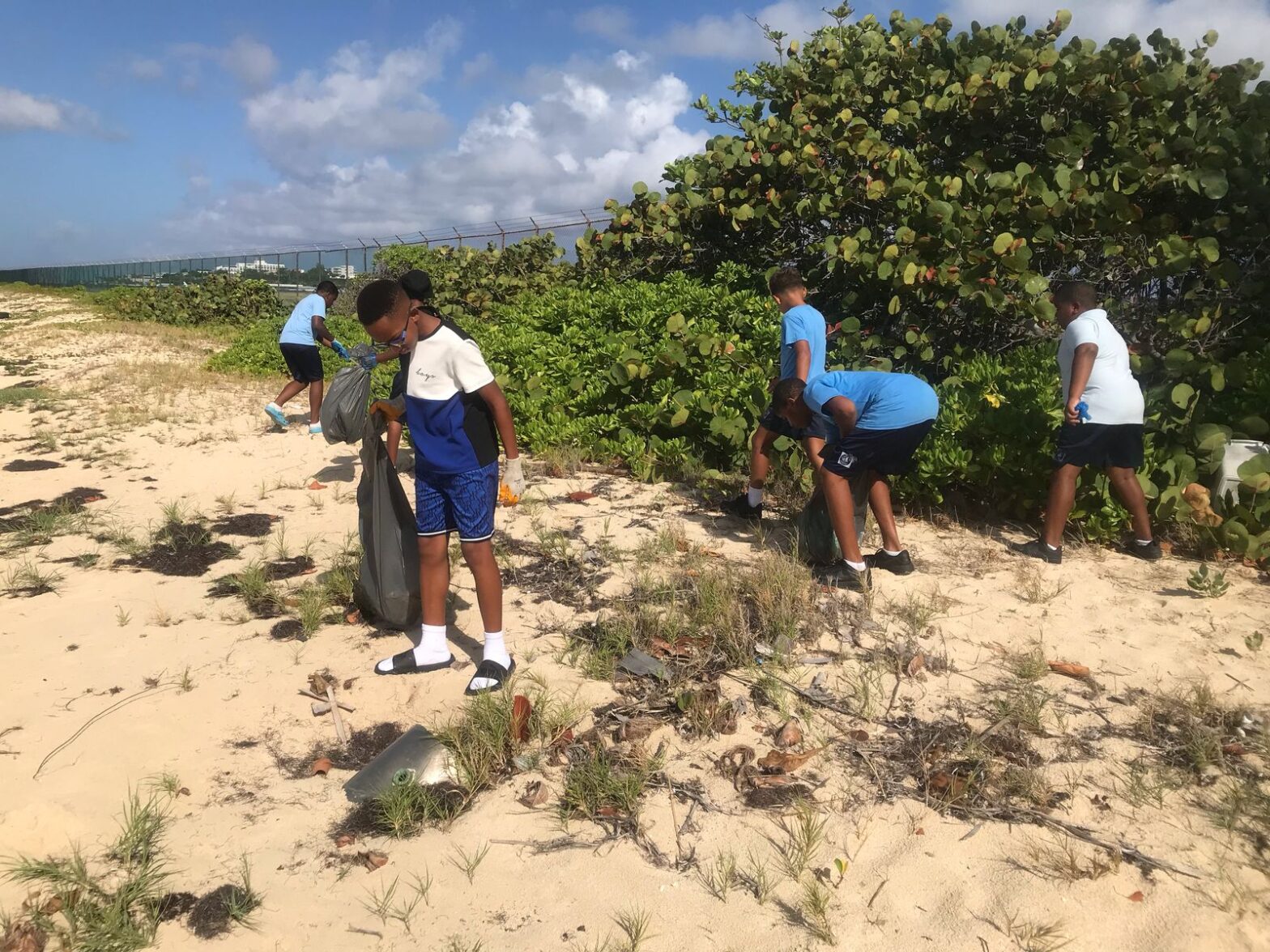Part 1: by Ria Uiterloo
April 25, 2025
Education has been undergoing a powerful transformation, which is much needed. In the 21st century, success is no longer measured solely by test scores or rote memorization, but by the ability to think critically, solve real-world problems, collaborate effectively, and adapt in an ever-changing world.
At SKOS schools, this shift is already part of the learning philosophy. The Foundation Catholic Education St. Maarten (SKOS) believes that education should be relevant, experiential, and empowering—giving students the tools they need not just to succeed in school, but to thrive in life. That’s why the Science Week at the Sr. Regina Primary School was designed not just to teach science—but to live it.
Rooted in global competencies and guided by STEAM education, Project-Based Learning, and Inquiry-Based Learning, the yearly Science Week gives students the opportunity to engage in hands-on, purposeful learning experiences. This year, through collaboration with community partners and projects aligned with the United Nations Sustainable Development Goals, students explored science in action and discovered that they, too, have the power to make a difference.”
As UNESCO emphasizes: “Education in the 21st century must develop learners who are inquisitive, collaborative, resilient, and globally competent—ready to contribute to a more sustainable and peaceful world.”
The week was more than a series of themed activities—it was a powerful example of Experiential Learning, rooted in the principles of STEAM education, Project-Based Learning, and Inquiry-Based Learning. With community partners, students didn’t just learn about science, they lived it.
The activities throughout the week highlighted Science, Technology, Engineering, the Arts and Math (STEAM) concepts in the context of environmental sustainability. Students explored how plastic impacts marine life, experimented with solutions to reduce pollution, and engaged in creative problem-solving through hands-on recycling and clean-up projects.
The Inquiry-Based Learning approach was also put into action.
From asking, “What happens to plastic after we throw it away?” to investigating the impact of human behavior on nature, students were encouraged to pose big questions. This curious, exploratory mindset is central to Inquiry-Based Learning, where students build knowledge by exploring and investigating real-world issues and forming their own conclusions.
At Sister Regina School, Project-Based Learning is more than an occasional activity—it’s a key part of their Experiential Learning philosophy, deeply embedded in their teaching approach. During Science Week, each class took on age-appropriate projects addressing real-world challenges aligned with the Sustainable Development Goals (SDGs): SDG 13 (Climate Action), SDG 14 (Life Below Water), and SDG 15 (Life on Land).
It wasn’t about worksheets or lectures; it was about meaningful action. By engaging in hands-on projects, students developed collaboration skills, empathy, and a deeper understanding of their role in shaping a more sustainable future. Through doing, they learned—and through learning, they grew.
Real-life learning came alive through meaningful collaborations with local environmental organizations such as EPIC’s Perpetual Plastic, the Nature Foundation, and Green Dream Projects. These partners gave students the unique opportunity to work alongside professionals dedicated to protecting St. Maarten’s natural environment.
With their guidance, students engaged in hands-on activities that tackled pressing environmental topics:
• Beach and school clean-ups
• Recycling and upcycling projects
• Experiments on the impact of plastic on marine life
• Workshops on climate change and sustainability
These experiences made classroom learning locally relevant, deeply personal, and action oriented. They also highlighted the power of community collaboration in shaping informed, responsible future citizens.
In the next blog post, I will share some reflections from the students about what they discovered and how the week changed their perspective.
What stood out to me through their reflections is how Science Week truly fostered a sense of agency and empowerment in them. They learned that they are not too young to make a difference, and that their small actions—like using reusable bottles or picking up trash—can have a lasting impact.
From critical thinking and creativity to collaboration and communication, the week empowered students with the tools they needed to become the next generation of changemakers. It wasn’t about memorizing facts—it was about taking action and building the confidence to be part of the solution.
Read full interviews with the amazing organizations that helped bring Science Week to life. Click below to read their reflections and advice for families:
Interview with Claude Javois, Green Dream Project
Colby Poerio, project coordinator Environmental Protection in the Caribbean
Interview with teacher Esmee, coordinator Team Science Week Sr. Regina School
Interview with Gaia Piccaluga from Nature Foundation


